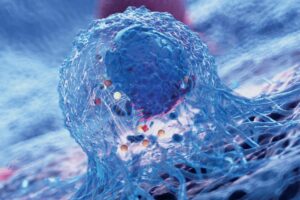In a significant development announced on August 28, 2024, Metabolon, Inc., a pioneer in metabolomics technology, and the Scottish Early Rheumatoid Arthritis (SERA) Study have joined forces. This collaboration aims to enhance our understanding of rheumatoid arthritis (RA) through the innovative use of metabolomics data, potentially paving the way for groundbreaking advancements in the diagnosis and treatment of this debilitating disease.
Rheumatoid arthritis affects millions worldwide, with women making up approximately 70% of those diagnosed. Traditionally, RA treatments have been hampered by a trial-and-error approach, largely due to the complex nature of the disease which manifests differently across patients.
The new partnership seeks to leverage Metabolon’s extensive metabolomics expertise alongside SERA’s richly detailed patient cohort data. By integrating metabolomics — the study of small molecules in biological systems — with SERA’s clinical and genomic data, researchers hope to uncover new biomarkers that can predict disease risk, progression, and response to treatment more effectively.
Karl Bradshaw, Chief Business Officer at Metabolon, explained the significance of the collaboration: “Rheumatoid arthritis is not only common but also incredibly varied in how it affects individuals and responds to treatments. By combining our resources with SERA, we aim to stratify patients more precisely and tailor treatments to individual needs, potentially transforming the therapeutic landscape for RA.”
Metabolomics stands at the intersection of genetic and environmental factors, providing a unique vantage point from which to explore the molecular mechanisms of diseases like RA. This approach could offer insights not only into the pathways involved in disease progression but also into how different patients might respond to specific therapies.
The SERA study has been instrumental in recruiting over a thousand patients from Scotland, gathering extensive data that includes clinical characteristics and a wide range of biological samples. This partnership will build on SERA’s efforts, which have been focused on understanding the early stages of RA and identifying markers that predict how the disease will progress.
Professor Iain McInnes, Vice Principal and Head of College at the University of Glasgow, highlighted the potential impacts of the partnership: “Our collaboration with Metabolon represents a crucial step towards realizing our goal of transforming RA treatment paradigms. Through this partnership, we anticipate developing more predictive therapies that can significantly improve patient outcomes.”
Metabolon’s history of over 20 years in the field and its contributions to more than 10,000 projects and 3,000 publications solidify its standing as a leader in metabolomics. The integration of this technology with SERA’s biobank could set a new standard in personalized medicine for rheumatoid arthritis, making treatment more effective and tailored to individual patients’ profiles.














